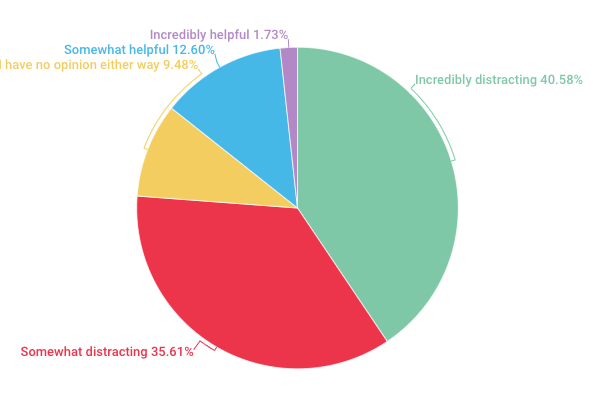Full Transcript and Video of the Congressman Coffman Interview.
Video and picture will be put in the article shortly.
February 12, 2017
Interview with Rep. Mike Coffman
R.O. There are many issues facing the House and Senate in the upcoming four years of Trump’s Presidency. In your opinion, what are the three most pressing issues that must be addressed?
M.C. I think actually the biggest issue is debt. General Mattis is going to be the next Secretary of Defense. I asked him one day in an Armed Services Committee hearing what he thought was the greatest threat to the security of the United States and he said the rising debt of America, so I think that dealing with the debt and bringing it down is number one. Item number two is…obviously, there are a lot of national security challenges outside of the United States that Trump will inherit from the prior administration that weakness toward the likes of Russia, and so I think that these guys…there are tremendous challenges facing the United States. I think the third is getting the economy moving. It’s been flat for a number of years, and I think there’s already signs, given the fact that Trump is preparing to take over the Presidency and reducing regulations and reducing taxes, and making American businesses more competitive, and dealing with trade policies, I think improving the economy is the third one.
R.O. You opposed Donald Trump while he was a candidate right up to his nomination and even afterward. Now that he has gone on to defeat Hillary Clinton to become the 45th President of the United States, how will you move forward to work with him?
M.C. Well…I was not impressed with his temperament and I hope he stops tweeting. I think we are going to work on regulatory reform, work on tax reform…I think that…I hope that he’s going to make America more competitive in terms of trade, as opposed to just being anti-trade. I think certainly national security. I think he wants to strengthen our military. He wants to have a more aggressive foreign policy, and I think in a smart way. I certainly want to work with him on that.
R.O. In your 4 terms of office, what legislation have you either authored or been a part of that you are most proud, and are you working on any new legislation to introduce to the House?
M.C. So…in a sense, being in the Armed Services Committee, we do one big bill a year called the National Defense Authorization Act, so instead of doing individual bills, we do amendments on to that bill, so I’ve done a lot of amendments on that bill over the years to make sure we have the best led, the best trained, the best-equipped military in the world, so I’ll continue to do that. I’m going to be the top ranking chairman for the in-house Armed Services Committee this year on the personnel committee. I think that probably the big issue I want to work on is one issue that I think is very important, and that’s the mental health of veterans, and for active duty military, because I’m concerned about the rising levels of Post-Traumatic Stress Disorder and the number of veterans receiving disability for that, who are no longer eligible for military service, so I think that’s something in terms of not only helping the lives of those veterans in terms of re-integrating back into society after having been in combat, but also from a readiness standpoint of being able to have people we can call up that are not disqualified for service during a time of war.
R.O. According to Senator Lindsey Graham, our army has shrunk to 1940 levels and our navy to 1915 levels. President Trump has pledged to rebuild the United States’ military. Being a military man yourself, what do you think would be the best way to allocate monies spent toward this monumental effort?
M.C. Well, I think that probably the greatest deficit we have in terms of military capability is the projection of sea power in the United States Navy. I think we are down to around 280 operational vessels and in the Reagan buildup, we were up to 600 ships. Obviously, our ships now are much more capable than their predecessors, but no ship can be in two places at the same time, so we are being challenged in the South China Sea, simply because of the weakness, so I would say that’s the greatest deficit. I think that members in the Armed Services Committee, most of which are in military service, due tend to focus too much on just the numbers of personnel. We need to focus not on the numbers or how many people are in the United States Army, Marine Corps, Air Force, or Navy, but we need to focus on what is the combat capability. How many brigades are on that team? Do we know they’re operational? How many ships do we have that are deployable at sea? How many fire wings do we have? Those are the issues. It’s about the projection of wars, not just the number of individuals because we have become far too bureaucratic in the Department of Defense. We are too top heavy, so you can’t just look at the numbers of personnel.
R.O. For your upcoming fifth term in office, what changes can the constituents of Colorado expect to see in our state and how will you be a part of that?
M.C. Well…we’ve got to tackle a lot of these issues. I think the first issue is going to be Obamacare…the repeal and replacement of all of Obamacare. Obviously, there is a lot of tension about what that will look like. I think there’s a lot of misunderstanding about what we are going to do. There’s probably 3 phases in that. It’s not delivered as President Obama said it would. It has not lowered cost, and it has not really broadened access to healthcare, and so I think the question is how do we do better? We will not repeal a section without having a replacement for that section concurrently. I think there’s a lot of concern about that, but that’s not what we’re seeing, so that’s a big issue.
The second big issue is going to be tax reform. I think we’re going to move forward. Our taxes are too high, too complicated. We have to move forward to pro-growth. Tax reform will get us to that, similar to what was done during the Reagan years…to move this economy forward. It will make American business more competitive.
No doubt, the building of our military will be part of that.
I would say that those are the biggest, most immediate issues…and regulatory reform. People are just buried in regulations, so they need regulatory relief, along with big business, so I think that is something that will be perceived on fairly quickly.
FOLLOW UP QUESTION ON OBAMACARE
R.O. As a follow up to Obamacare, can you go into more detail on that? Are you working with anyone so far?
M.C. Absolutely. There will be 3 phases to how we deal with Obamacare. It’s about how you broaden access to healthcare, how you lower cost, how do you maintain quality of care in a patient that has come to you for assistance? The first phase will be what’s called “life reconciliation”. That’s a little complicated, but what that does, that enables us to deal with the tax and spending part of Obamacare where the Senate Democrats can’t filibuster. What filibuster means is that it requires 60 votes to go to the floor, so that we have to have Democrats. Even though we have 52 Republicans, there is the fact that we’d require eight Democrats if all republicans stick together and have eight Democrats. If we don’t have that, then it’s blocked, so they will not be able to block that measure through what is called “budget reconciliation”. Probably we will deal with the taxes in Obamacare, we’ll deal with the subsidies in the insurance exchange, how do we help people in other ways, and what’s called the Medicaid expansion, which is essentially a government run program for the poor and disabled that was expanded under Barack Obama beyond the poor and disabled, and it is really contributing toward our debt, so the question is, how can we help these people in a way that is more of a free market solution with some element of individual responsibility to it, so that’s going to be the first phase.
The second phase is a very long phase. In Obamacare, in the Affordable Care Act, it is full of provisions in there that essentially says that the Secretary of Health and Human Services, which is going to be Dr. Tom Price, who is a member of Congress I work with, shall do this, and this, and this, and this. What Obamacare did, is it gave a lot of discretion to people in the administration to implement the law and to write significant parts of the law. He won’t have the ability to work on, without even Congress, without that authority or the authority of the law, to make changes to the Affordable Care Act as we go forward.
The third phase is going to be the more difficult phase, the most difficult phase. The third phase is about what we can’t do with budget reconciliation, and the administration can’t do, will require Democrats to floor it because of their ability to filibuster, and that the insurance regulation part, that’s saying all policies have to be uniform, that pre-existing conditions without holding insurance prior to that….so, we’re going to have to try to re-write that to where it makes sense, but we won’t have to have Democrats support the bill…at least the last part.










